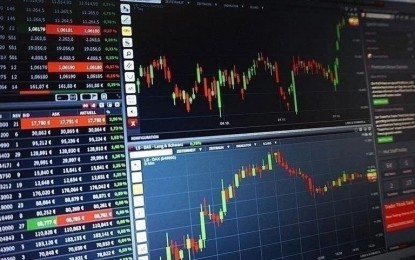[5.8] 금리 인상 vs. 인플레이션은 세계 경제를 위협한다
컨텐츠 정보
- 14,813 조회
본문
ANKARA – 일본 고베 대학의 경제학 교수인 "Charles Yuji Horioka"에 따르면 인플레이션에 대처하기 위해 금리를 인상하는 많은 국가의 정책은 경기 침체 또는 경제 성장 둔화를 초래할 수 있습니다.
Anadolu와의 독점 인터뷰에서 "Horioka"는 현재 전 세계적으로 발생하는 경기 침체 우려의 주요 동인에는 코로나바이러스 질병 2019(Covid-19) 대유행, 높은 인플레이션, 러시아-우크라이나 전쟁 및 높은 연료 가격이 포함된다고 말했습니다.
코비드-19 팬데믹이 전 세계적으로 경제 활동에 심각한 차질을 일으키고 국내총생산(GDP)을 감소시켰지만, "호리오카"는 경제가 현재 개선되고 있다고 말했습니다. 전염병의 부정적인 영향.
그러나 그는 또 다른 현재 문제는 매우 높은 인플레이션으로 많은 국가에서 금리를 인상하여 완화하려고 노력하고 있으며 경기 침체 또는 경기 둔화로 이어질 수 있다고 경고했습니다.
"경기 침체와 높은 인플레이션을 동시에 해결하는 최선의 정책이 무엇인지 알기 어렵다"고 "Horioka"는 말했습니다.
튀르키예와 일본은 금리를 낮게 유지하거나 양적 완화 정책을 시행한 국가의 두 가지 예이며 둘 다 부양적 통화 정책이라고 그는 말했습니다.
세계 경제의 동시다발적인 위기 속에서 현재 유행하고 있는 또 다른 정책은 공급망 붕괴와 부족을 야기하는 탈세계화입니다.
그는 "탈세계화는 다른 나라에 대한 의존도를 줄이고 더 큰 안보를 달성한다는 점에서 좋은 정책이지만 동시에 더 이상 무역의 혜택을 받지 못할 것"이라고 말했다.
그는 2021년 4분기에 공개된 Türkiye의 경제 모델에 대해 언급하면서 투자와 소비를 자극하는 저금리의 이점과 함께 성장과 수출을 강조하기 때문에 일반적으로 좋은 모델이라고 말했습니다.
높은 이자율 대신 Türkiye의 새로운 모델은 투자, 생산, 고용 및 수출을 통해 낮은 경상수지 적자와 높은 성장률을 목표로 합니다.
그러나 그는 인플레이션이 이미 상당히 높기 때문에 이러한 저금리 정책이 인플레이션의 추가 상승으로 이어질 위험이 있다고 경고했습니다.
그는 경제를 불황에서 벗어나게 하는 데 중요한 역할을 할 보다 확장적인 재정 정책을 옹호했습니다.
"그래서 무슨 일이 일어나고 있는지 모니터링하고 인플레이션이 통제되고 동시에 경제가 활성화되도록 노력하는 것이 중요하다고 생각합니다. Türkiye와 다른 국가들이 직면하고 있는 매우 어려운 딜레마입니다. " 그는 덧붙였다. (아나돌루)
This is the Original Article from PNA NEWS
[5.8] Raising interest rates vs. inflation endangers global economy
ANKARA – The policy of many countries to raise interest rates to combat inflation could result in a recession or a slowdown in economic growth, according to "Charles Yuji Horioka," professor of economics at Kobe University in Japan, on Monday.
In an exclusive interview with Anadolu, "Horioka" said the main drivers behind the current economic recession worries around the globe include the coronavirus disease 2019 (Covid-19) pandemic, high inflation, the Russia-Ukraine war, and high fuel prices.
Although the Covid-19 pandemic has caused a severe disruption in economic activity and declines in gross domestic product (GDP) across the globe, "Horioka" said economies are currently improving, thanks to stimulative policies implemented by various governments in an attempt to offset the pandemic's negative impact.
However, he observed that another current issue is very high inflation, which many countries are attempting to alleviate by raising interest rates, and which he warned could lead to a recession or economic slowdown.
"It is difficult to know what is the best policy to simultaneously address the recession as well as high inflation," "Horioka" said.
Türkiye and Japan are two examples of countries that have kept interest rates low or implemented quantitative easing policies, both of which are stimulative monetary policies, he said.
Another policy that is now prevalent amid the many simultaneous crises in the world’s economies is deglobalization, which is causing supply chain disruptions and shortages.
"Deglobalization is a good policy in the sense that it reduces reliance on other countries and achieves greater security, but at the same time, you will no longer get the benefits from trade," he said.
Commenting on Türkiye’s Economy Model, unveiled in the last quarter of 2021, he said it is a good model in general because it emphasizes growth and exports, among others, with the benefit of low interest rates that stimulate investment and consumption.
Instead of higher interest rates, Türkiye’s new model aims for a low current account deficit and a high growth rate through investment, production, employment and exports.
However, he warned that as inflation is already quite high, the danger is that this low interest rate policy might lead to a further increase in inflation.
He advocated for more expansionary fiscal policies, which will play a major role in bringing economies out of recession.
"So I think it is important to monitor what is going on and to try to make sure that inflation is kept under control and that the economy is stimulated at the same time. It is a very difficult dilemma that Türkiye and other countries are facing," he added. (Anadolu)
관련자료
-
이전
-
다음


